MAIN MENU /
Uplifting Brands That Uplift Others
hello@upandup.agency
504 Rhett Street, Suite 100
Greenville, SC 29601
(864) 373-9330
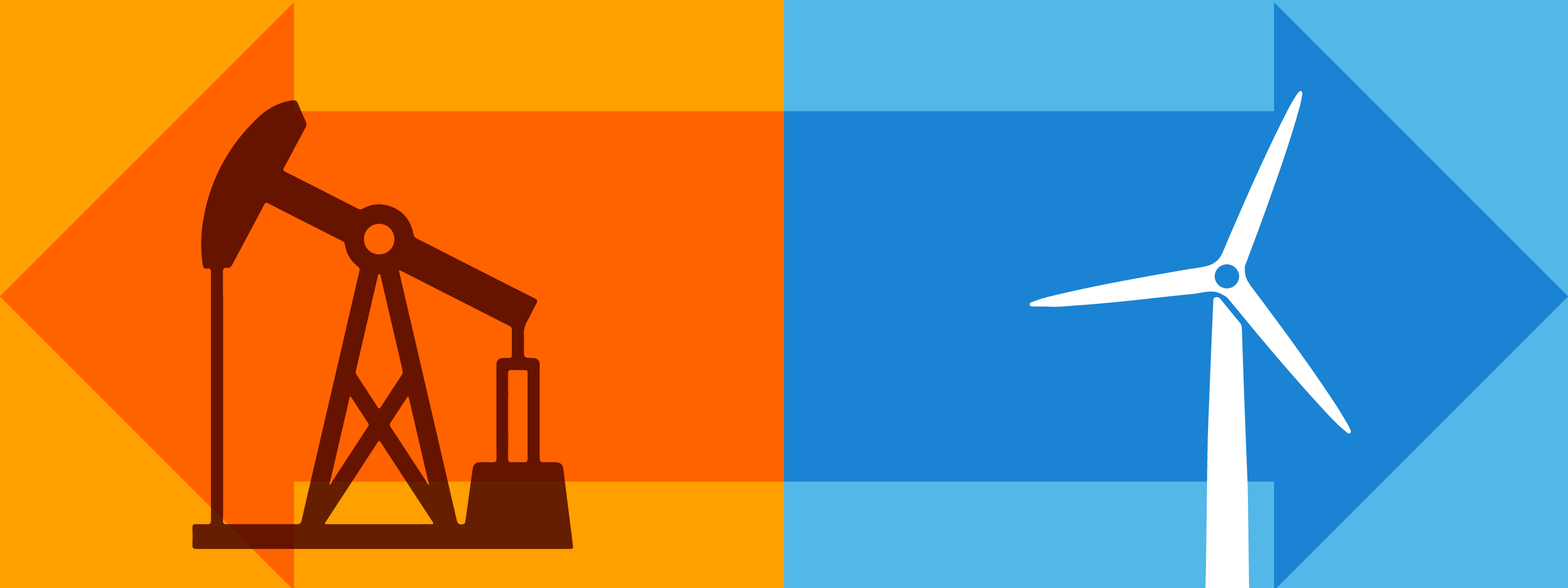

I cringe a bit every time I hear how the economy we’re living in today isn’t what it used to be before the “Great Recession.” While the economic recession officially ended in 2009, we have no doubt felt its effects ever since. But I for one have no desire to return to the economy leading up to 2007. It simply wasn’t sustainable.
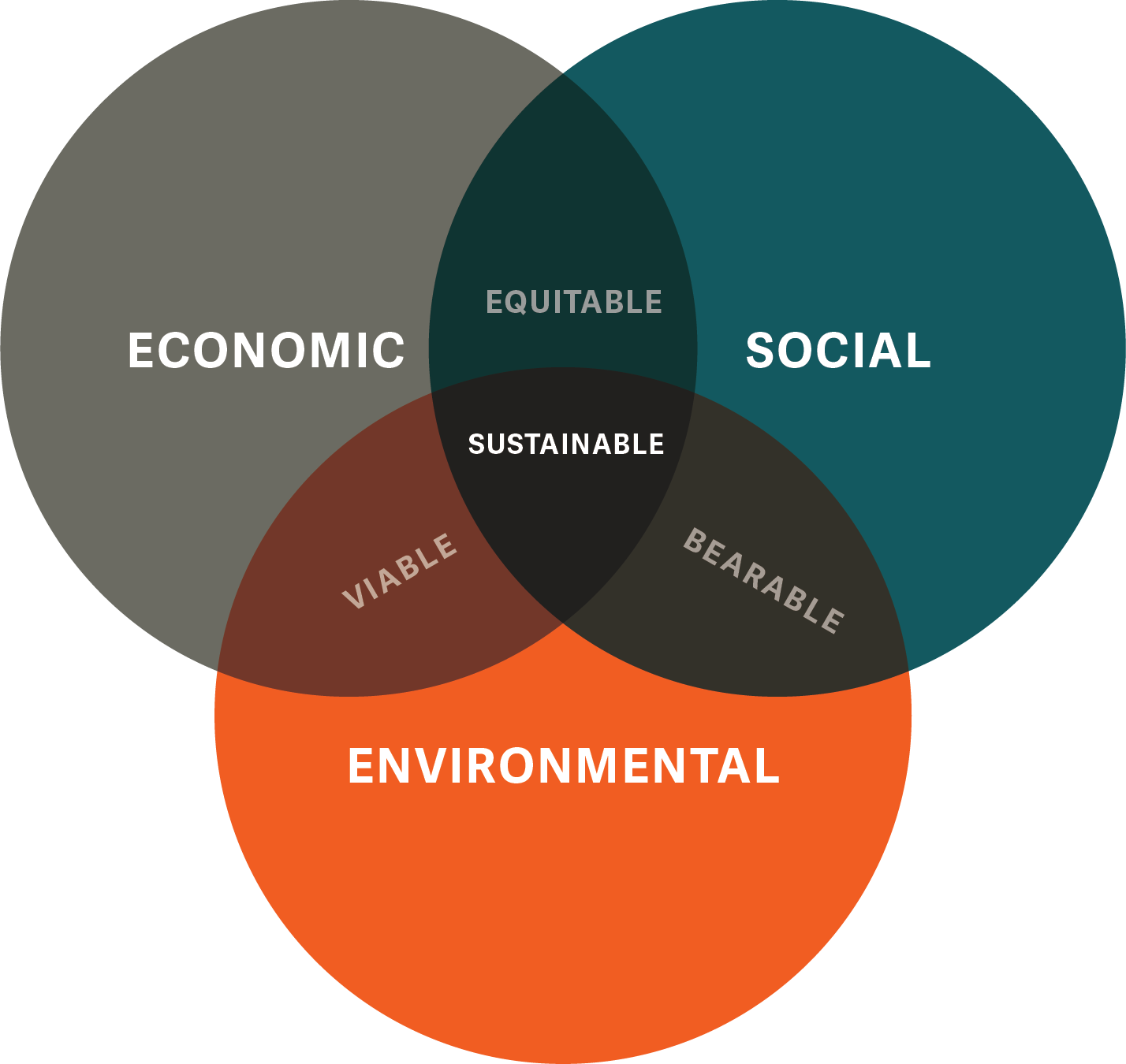
Unfortunately the word sustainability has been unfairly “greenwashed” by some to mean anything associated with the green movement, tree-hugging, recycling, granola-eating, anti-growth, anti-development or anti-business. But in fact, sustainability and business are intrinsically linked.
Any business owner, CFO, or accountant knows that in order to generate a profit and survive, your expenses need to be lower than your income. Your payroll can’t be $100k a month if your revenue is consistently $80k. It’s not sustainable.
Now apply that same thinking to agriculture. In California and many places around the world, the supply of fresh water to irrigate food crops is not endless. So farmers pump water from aquifers deep under the ground. But eventually that supply runs out too. It just isn’t sustainable. Unlike money, the world’s water and fossil fuel supplies are finite. Scientists and political pundits might disagree when oil, coal, and natural gas supplies will run out, but they all agree that there isn’t an infinite supply.
The future of life here on earth is only bleak if we sit on our hands and do nothing. Where there are challenges and uncertainty about the future, sustainability offers hope and opportunity. Business opportunities. There is a tremendous amount of opportunity to build new infrastructure, develop new technologies, and make existing technologies more efficient.
Sustainability is the economic engine of the new economy. This is an exciting time we live in, and the opportunities are everywhere if you look for them. We’re moving toward a more sustainable future, one way or another. Just look at the energy sector.
You can hardly escape the news about the downturn of world’s oil production. It has become increasingly hard to make money in oil. And the future of oil supplies looks pretty bleak. For J.R. Ewing and real life oil tycoons in the 1980s, oil was one of America’s biggest cash crops. But oil production in Texas peaked in 1985 and in Alaska in 1990. The world is running out of oil.
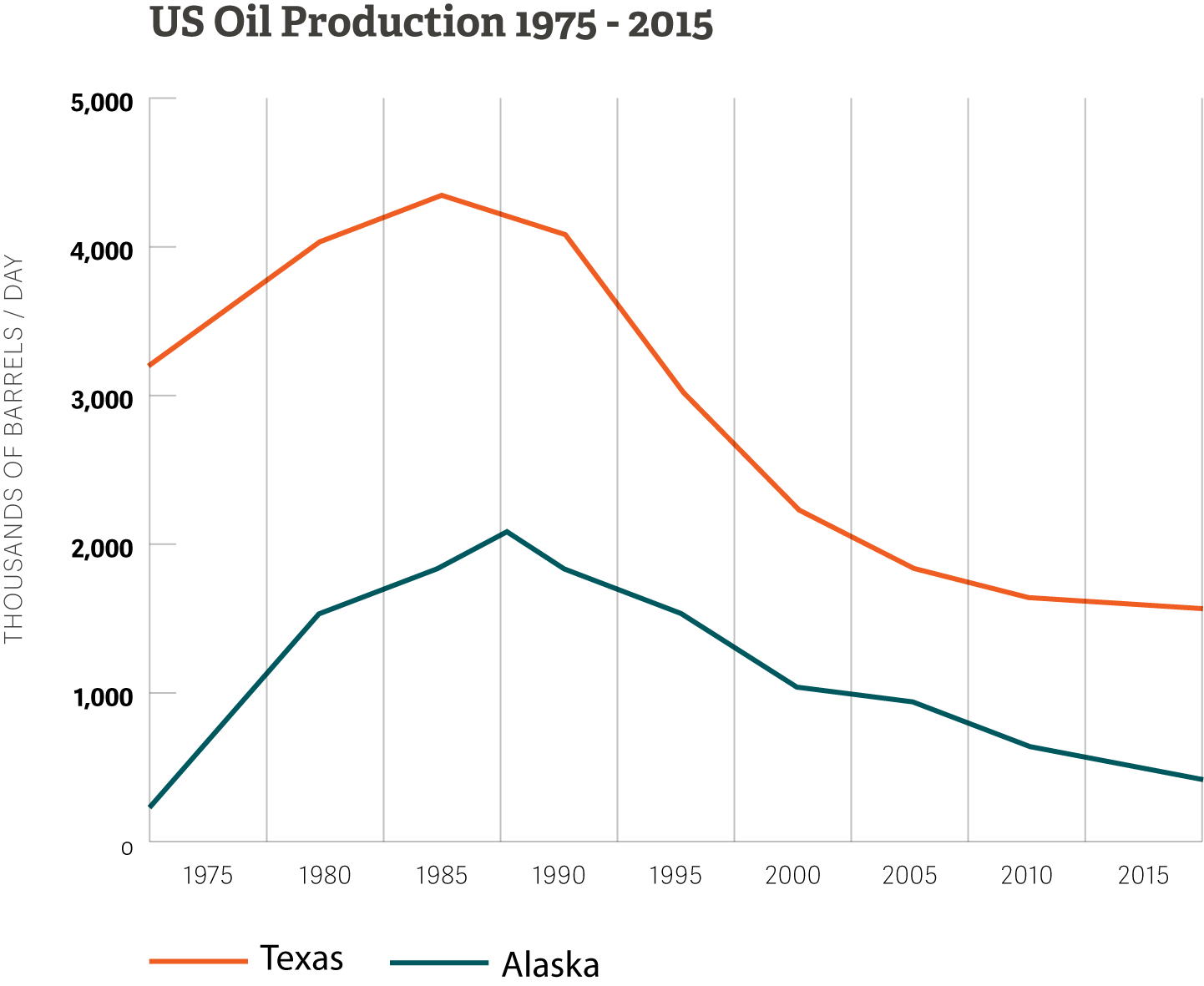
While some may argue that shale oil and oil sands in Canada are the industry’s savior, the EROEI (energy return on energy invested) for shale is 5x less than traditional crude. It’s less profitable, because it takes more energy to extract and turn into fuel.
“The world has 53 years of oil left at the current rate of production, according to BP’s annual statistical review of world energy.”
While the future of oil is limited, renewable energy is rapidly gaining steam. Technological advances in solar PV (photo voltaic) systems that turn sunlight into energy have dramatically increased efficiency and reduced costs by 99% in the last 25 years. Solar PV has become economically viable for business and residential applications.
Wind energy is also booming (it’s actually way ahead of solar in the United States.) Of all renewable energy consumed in the US, 5% comes from solar and 33% comes form wind. But an even more dramatic statistic is how quickly wind energy is growing. Since 1997, energy harnessed from wind (both on land and sea) has doubled every three years.
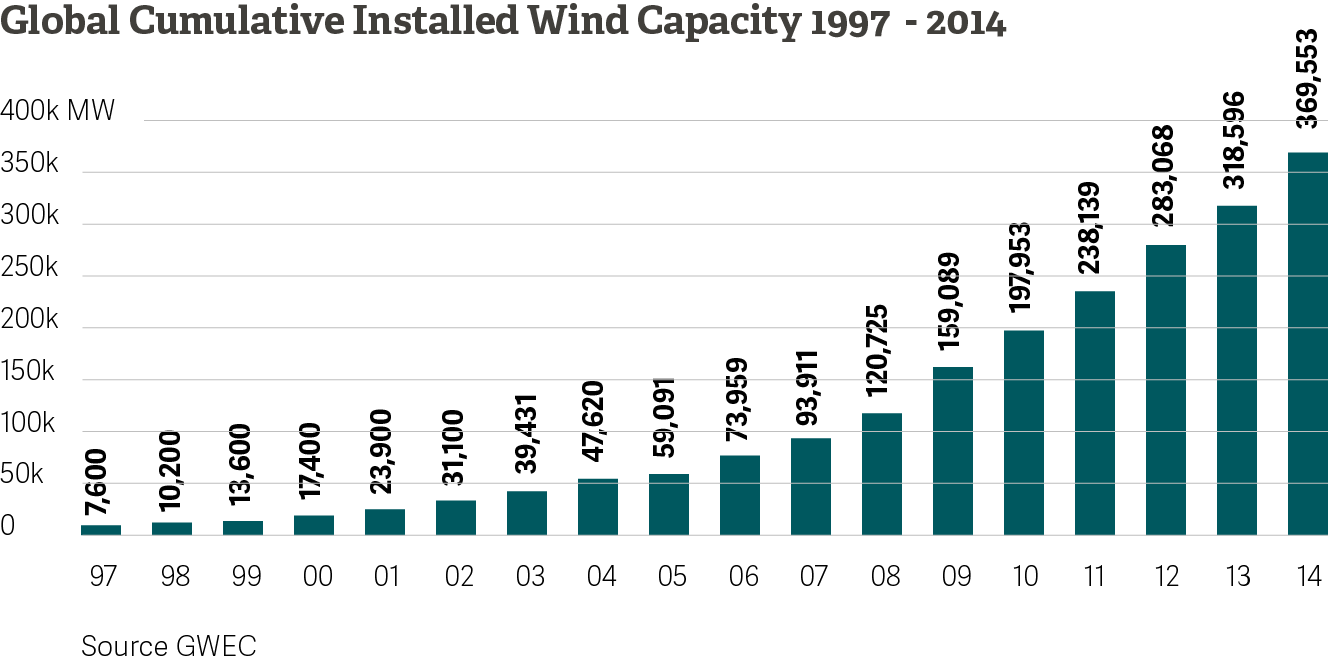
Given the downward trajectory of oil and the dramatic upward trajectory of renewable energy, which one would you rather hitch your wagon to?
It’s our job as marketers to help educate and change minds — to show people there is a better way. To not live for just today, but to think about our future and the future of generations to come. Sustainability is about meeting the needs of the present without compromising the ability of future generations to meet their own needs.
Of course there will be those that dig their heels in, and refuse to change. And some will argue that changing how we consume energy and natural resources will be too expensive.
But the world economy has changed, and change is the core of sustainability. Where there is a need for change, there are business opportunities. And the call of sustainability is not to slow or stifle economic growth… but to sustain it.
What role do you think marketers play in building a sustainable world? What are some ways you’re working to contribute to a more sustainable future? Share your feedback in the comments.